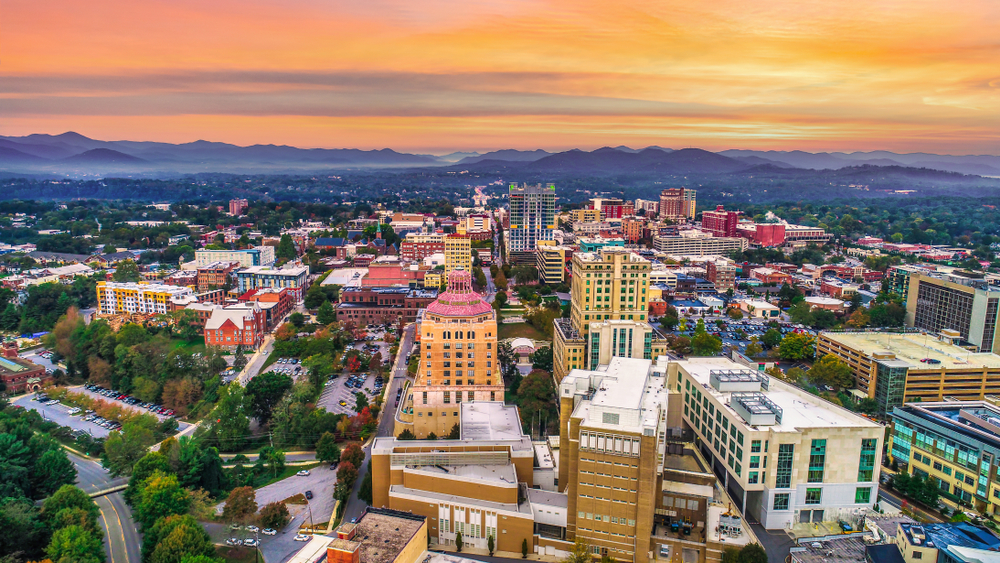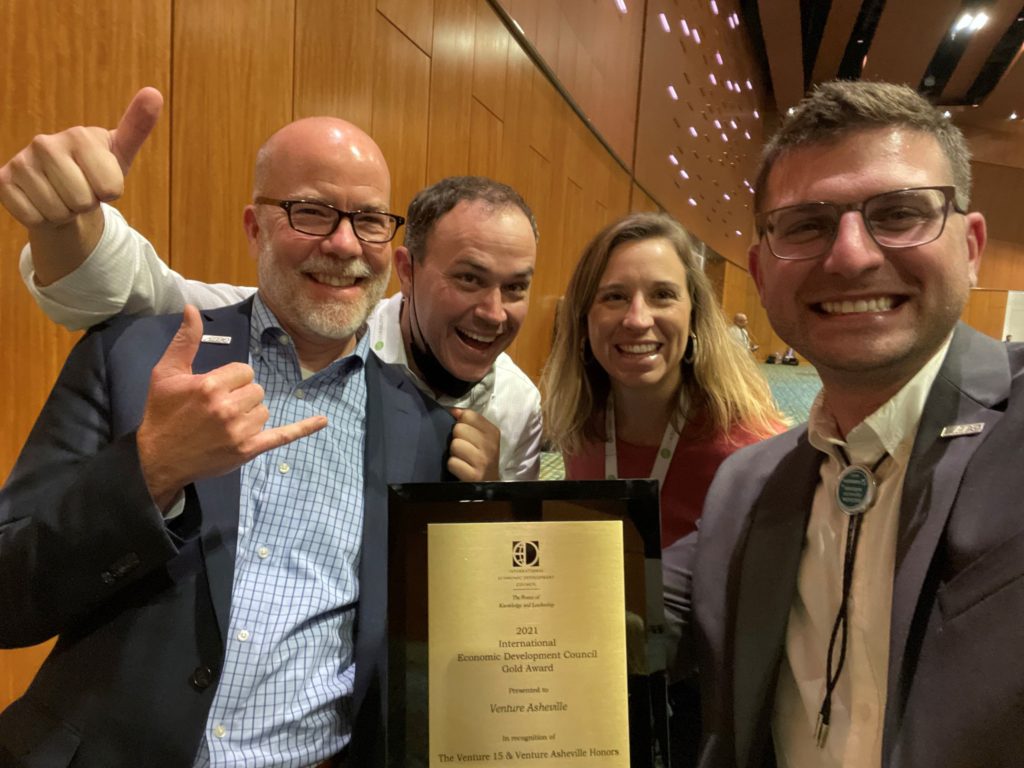How does a startup community thrive in a town full of hippies, hotels, and hops?

Welcome to our series taking a Deep Dive into Venture Asheville. This is the first installment, Setting the Scene for a Small City Startup Hub. You can find all the posts in this series linked here:
How Venture Asheville Built a $150M Startup Ecosystem; A 7-Part Series
- Setting the Scene for a Small City Startup Hub
- Elevate, a mentorship-based incubator
- The MIT Venture Mentoring System
- Peer Facilitated Mentorship
- TheE13 and Experience Portfolios
- Engaging an Event-Driven Ecosystem
- Looking Beyond the $150M Impact
__________________________________________________________________
How does a quirky town full of hippies, hotels, and hops become a thriving startup community? Well, get ready for a deep dive into the world of Venture Asheville, where we’re about to uncover the magic behind their impressive achievements of making $100 million in revenue and raising $50 million in capital.
First things first, let’s set the scene for this small city startup hub. Venture Asheville didn’t just appear out of thin air; it was the result of a strategic collaboration between the City of Asheville, Buncombe County, and the Asheville Area Chamber of Commerce. Together, they birthed the Economic Development Coalition for Asheville-Buncombe County (EDC) with a mission to boost the region’s economic vitality.

Now, economic development might sound like a buzzword, but for the EDC, it meant more than just business. They decided to include startups and new venture creation in their strategy, giving birth to the incredible initiative we know and love today.
So, what’s the secret behind Venture Asheville’s success? It all starts with high-growth ventures in the startup phase. These little powerhouses require resources from the community, like mentors, angel investors, coworking spaces, events, competitions, and labs. In return, they create a massive impact, bringing investment, new revenues, and creating skilled knowledge-based jobs that pay way above the county average.
But hold on, you might be wondering, “Isn’t Asheville known for its leisure and hospitality industry?” Well, yes, but it’s much more than that. Asheville’s diverse economy boasts healthcare, advanced manufacturing, technology, and tourism as key industries. Thanks to its thriving arts and culture scene and breathtaking natural beauty, the city attracts both tourists and new residents.
But here’s the kicker – Asheville falls just a tad short of the 100,000 people mark, which is considered the starting point for building a successful startup hub (right, TechStars). However, against all odds, Venture Asheville is thriving, defying traditional models. How is that possible, you ask?
Innovation Ecosystems, as Philip Budden and Fiona Murray from MIT describe, is the intersection of key stakeholders: entrepreneurs, universities, risk capital providers, government, and corporations. We look at any ecosystem in terms of the quality, vibrancy, and interconnectedness of each of those five stakeholder groups to determine the likelihood of a successful ecosystem, one that produces quality high-growth startups.
Admittedly, Asheville doesn’t rank highly across these traditionally accepted stakeholders of ecosystems.
Regardless, Asheville is thriving. It was rated the 7th fastest growing tech hub in the USA in 2022. Venture Asheville earned a Gold Ranking by the International Economic Development Council. This Small City is producing startups that are punching far above their weight. Is that in spite of the current models, or does it reflect a new emergent model, one that more accurately represents the constraints and affordances of smaller cities? We submit the results of our incubator as evidence to support a new emergent model for small cities.

In place of corporations, government, risk capital, and universities, our stakeholders include mentors, visitors, our organization (a public-private-partnership), and a sense of place (Asheville, itself). That’s not to say corporations, government, risk capital, and universities don’t exist here, they do. Where these may take a bigger leadership role in larger cities, small cities have to create their own stakeholder model, define a social fabric, and build interconnectedness to develop the ecosystem.
Here’s where the secret sauce comes in – social fabric. The interconnectedness of ecosystem stakeholders, again to paraphrase Budden and Murray, is the social fabric of the market – the common needs, resources, values, and trends that develop trust between the individuals at those organizations. In Asheville, it is all about “going local” and “buying local,” a mantra that residents and visitors alike wholeheartedly embrace. From craft markets to farmer’s markets, the people of Asheville are all about supporting local entrepreneurs and businesses.
If you visit Asheville, you will quickly see how seriously everyone embraces “going local.” The values are reinforced to residents and visitors are from signage on the street, to ads in the paper, to what you see at restaurants and in a venues. “Going local” is an advantageous business model here.
We have markets for crafters, makers and farmers several times a week all throughout the year, where these entrepreneurs can get their wares in front of customers to get instant feedback and instant sales. This makes for a rapid product development cycle and accelerates traction. These various and frequent channels are a key reason why our food and beverage/CPG products scale so well and so quickly here.
The social fabric of “going local” means people here spend their money locally first. That early traction, early momentum, consistent feedback, many opportunities to iterate and improve, turns into early sales – getting these products into bigger stores and wholesalers (i.e. scaling).
This unique social fabric is woven into the core of Venture Asheville, creating a sense of unity and a common goal – to elevate the underdog and turn it into the next big thing. With this “Asheville against the world” attitude, startups find the support and encouragement they need to grow and flourish from mentors, investors, cheerleaders, press outlets, and of course the Economic Development Coalition.
In the following sections, we’ll take you on a journey through the various components of Venture Asheville’s incubator, where stakeholders and the social fabric come together in perfect harmony.
So stick around, because there’s so much more to uncover in this thrilling small city startup hub! Let’s dive into Elevate, a mentorship-based incubator, and explore how Venture Asheville nurtures and propels startups to new heights. Buckle up, it’s going to be an exciting ride!
__________________________________________________________________
In the following sections, we’ll discuss how we harness stakeholders and our social fabric into our incubator.
How Venture Asheville Built a $150M Startup Ecosystem; A 7-Part Series
